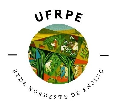Banca de QUALIFICAÇÃO: AFONSO BARBOSA DE LIMA JÚNIOR
Uma banca de QUALIFICAÇÃO de DOUTORADO foi cadastrada pelo programa.STUDENT : AFONSO BARBOSA DE LIMA JÚNIOR
DATE: 04/08/2025
TIME: 10:00
LOCAL: Google Meet
TITLE:
Personalized Learning and Maker Educational Practice: Analysis of a Study Plan Implemented in Higher Education
KEY WORDS:
Personalized education. Maker education. Personalized study plan. Maker educational practice.
PAGES: 84
BIG AREA: Ciências Humanas
AREA: Educação
SUMMARY:
This study deals with educational practices inspired by the concepts of Personalized Education and Maker Education. Both concepts provide elements for thinking about a more active and creative education that goes beyond the traditionality of non-dialogical lectures, memorization, and reproduction of curricular content. With the automation of human activities, artificial intelligence, and the growing customization of products and services, there is an emerging demand for educational processes that cater to the learning profile and personality (interest, pace, and learning time, for example) of each student. In this context, the articulation between Personalized Education and Maker Education contributes substantially to the design of study plans that highlight the self-management, inventive, and investigative abilities of children, adolescents, and people in general. In the wake of these considerations, the following guiding question for this study arises: how to implement a personalized study plan articulated with maker educational practice in Higher Education? Based on this question, the general objective of the research is to analyze the implementation of a personalized study plan articulated with maker educational practice in Higher Education. To achieve this, the following specific objectives were established: (stage 1) to discuss proposals for personalizing learning in Brazil, within the scope of dissertations and theses; (stage 2) to describe the implementation of a personalized study plan linked to maker education practices in higher education; and (stage 3) to evaluate the possibilities and challenges of personalizing learning linked to maker education practices, based on the study plan implemented. Methodologically, this investigative itinerary was divided into these three stages, operationalized using a Qualitative Approach, Systematic Literature Review (SLR), and Interventional Research, specifically in the Application Research modality, which enabled the design of the study plan, the researcher's immersion in the classroom, and the proposal, monitoring, and discussion of the activities carried out. Data collection was carried out through SLR, a self-administered questionnaire, and semi-structured interviews. Thus, 42 students enrolled in the “Education and Technologies” course, offered in the Pedagogy program at the Federal University of Paraíba, and the professor responsible for the course participated in the study. The partial results (stage 1) showed that Personalized Education, despite being a focus of interest for researchers in Brazil, represents a little-explored field of discussion, which was evident in the sample identified and in the educational practices discussed. It is hoped that the subsequent stages, based on experimentation with the concepts of Personalized Education and Maker Education, will produce data that contribute to the implementation of innovative educational practices that consider students' learning profiles as an essential resource for planning and managing educational activities.
COMMITTEE MEMBERS:
Presidente - BRUNO SILVA LEITE
Interna - ANA MARIA DOS ANJOS CARNEIRO LEAO
Interno - ***.894.644-** - JOAO ROBERTO RATIS TENORIO DA SILVA - UFPE
Externo à Instituição - LUÍS PAULO LEOPOLDO MERCADO - UFAL
Externa à Instituição - PATRÍCIA BRANDALISE SCHERER BASSANI




